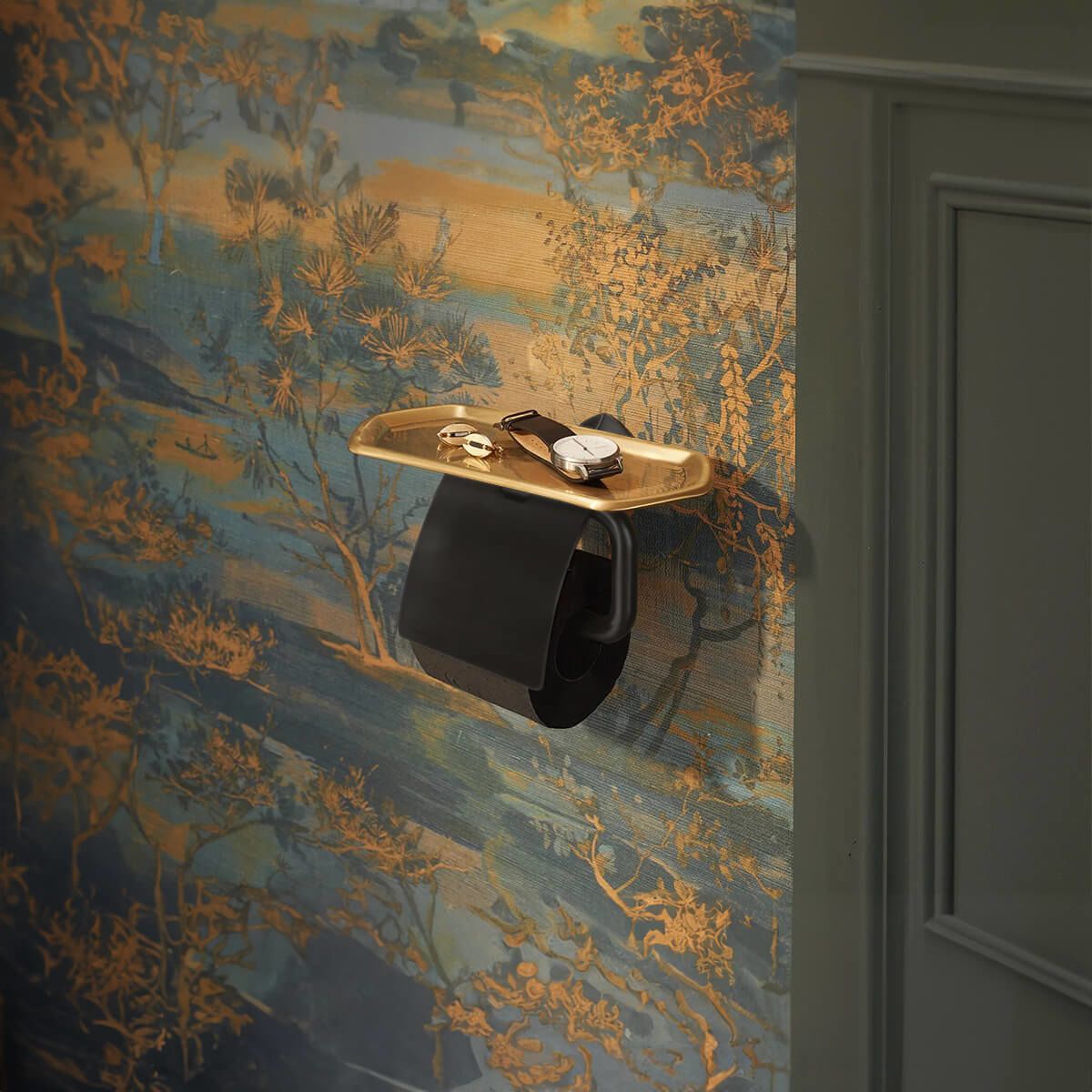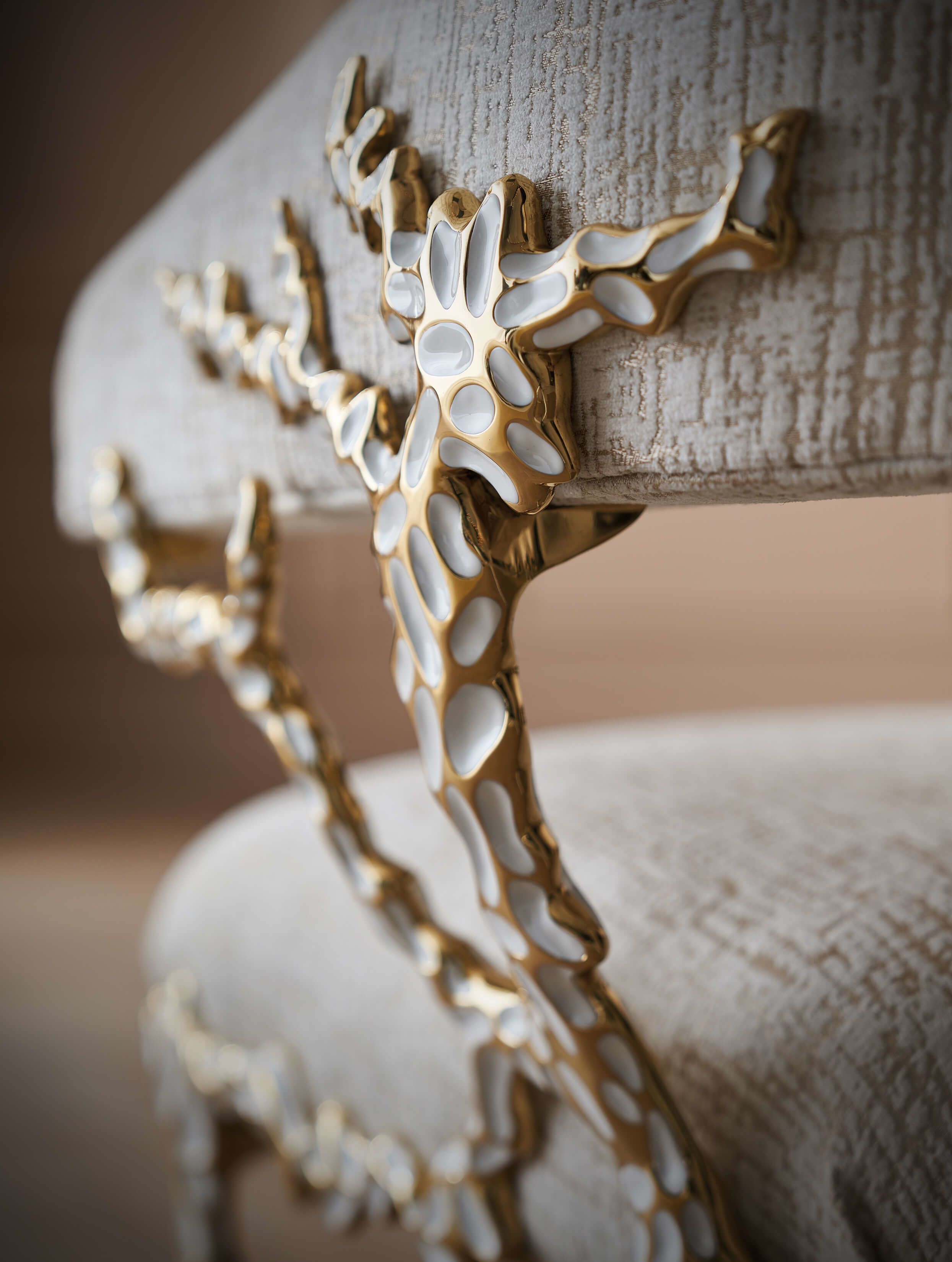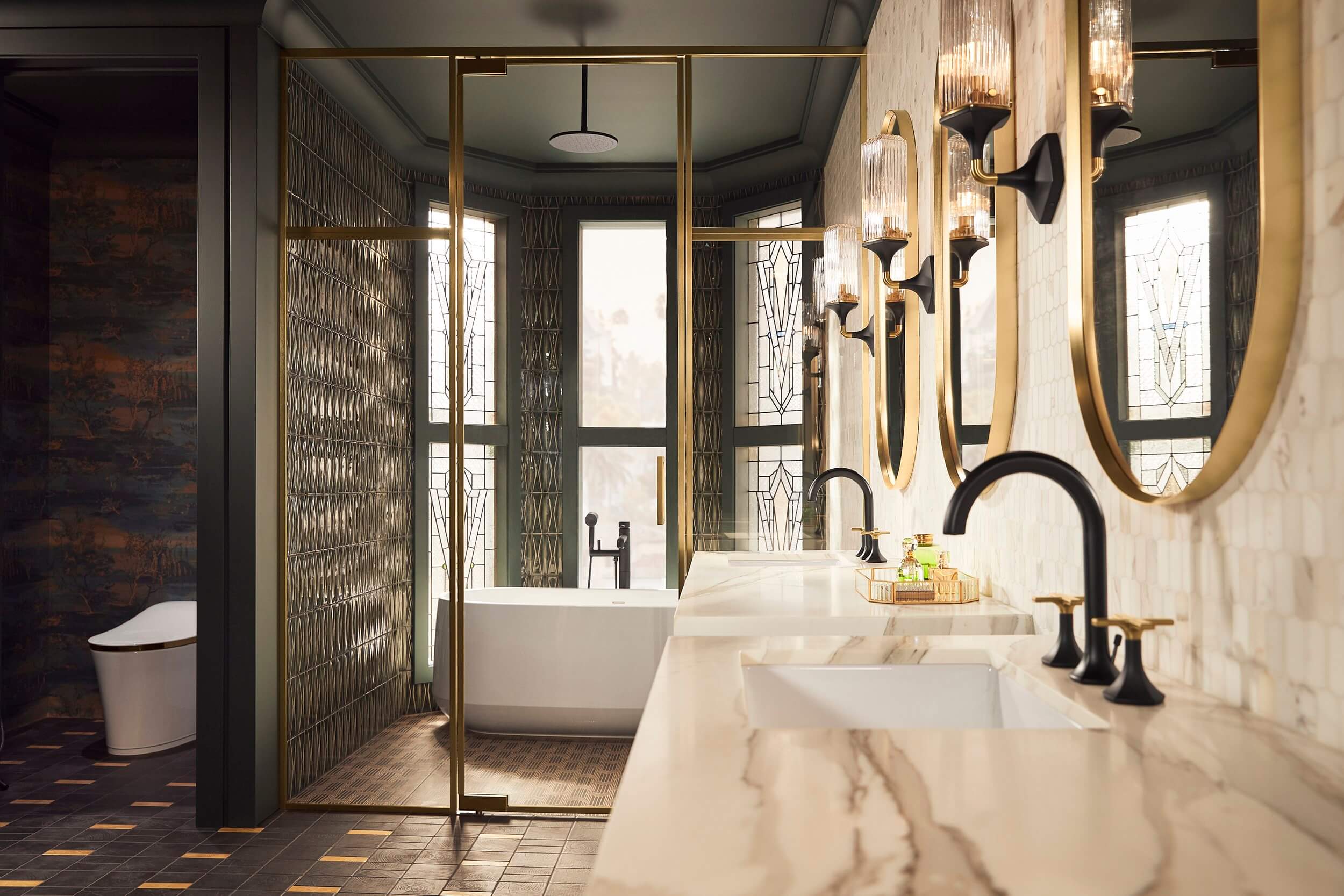Rebuilding
a legacy
How Dexterton transformed into
a customer-centric business
Founded: 1973
Number of employees: 250
Industry: Supplier of premium home fixtures
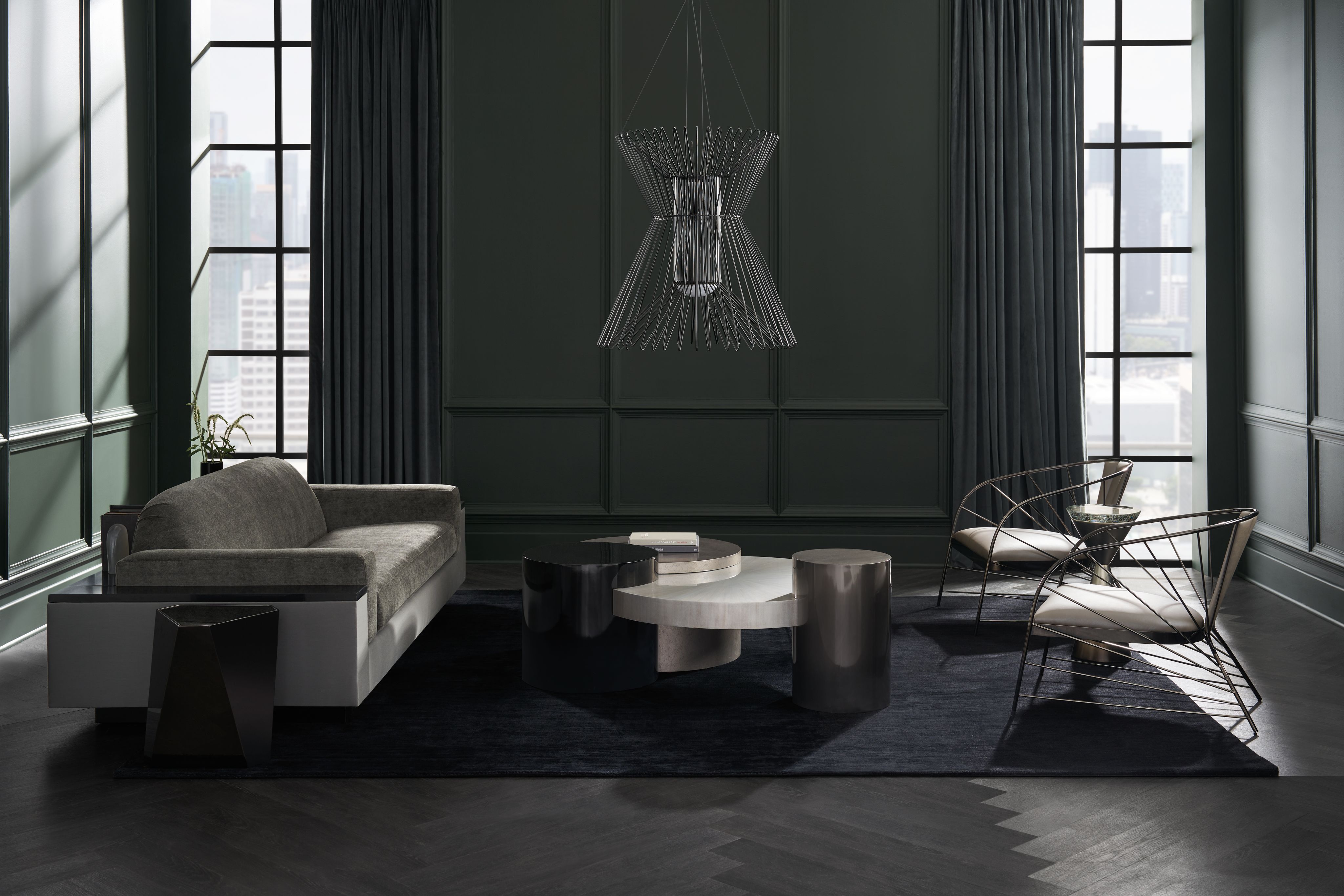
Audrey Go, the CEO of Dexterton, is one of the few female leaders in her industry. She has a unique way of leading - with determination, ambition, and a deep sense of purpose (fueled by goodwill and a bit of meditation!).
In this conversation, we’ll go beyond the mechanics of customer-centricity at Dexterton to explore the deeper motivation behind it. This is a story of bold transformation - not just for the company, but for Audrey herself.
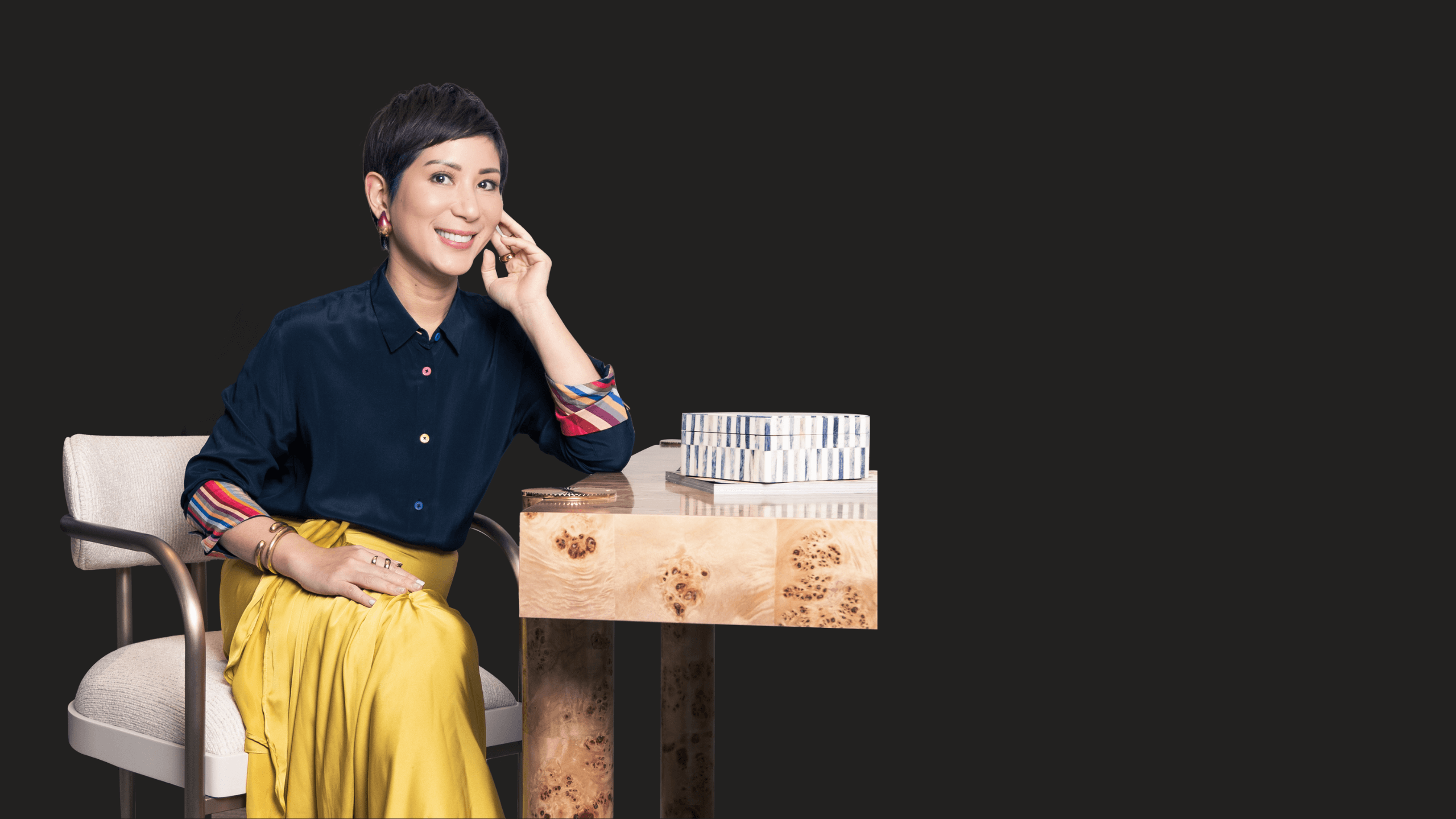
A 50-Year-Old Startup
Can you walk us through your company’s services and history?
Dexterton officially started in 1973 as a family business founded by my father. For more than 50 years, we’ve been importing and curating premium home fixtures, including tiles, furniture, kitchen and bath solutions, and surface materials, to help people create their dream homes.
We began as a retail-focused business, serving walk-in clients who made their own purchase decisions. But since 2000, we’ve seen a shift - designers, architects, and influencers now drive 60% of our retail business, acting as gatekeepers for end users. This has required us to prioritize relationships with these key accounts.
We also have a dedicated team to handle large-scale projects like hotels, restaurants, and hospitals. These clients don’t frequently change their selections but rely heavily on timely delivery.
Dexterton thrived through the ’80s to the early 2000s, but we hit some tough internal and external challenges that made us question our future. When I took over Dexterton in 2022, my top priority was stability. As we regained our footing a year later, I realized we had stayed the same for 40 years while the industry had changed drastically. We were already a decade behind, and it was time to evolve.
What’s the evolution you’re talking about?
The world has gotten smaller, and everything is more transparent. In the past, sourcing from Europe meant exclusivity - now, anyone can buy materials online. That’s why we’ve shifted to a customer-centric approach.
Beyond supplying materials, people come to us to learn about the newest trends. We travel, research global trends, and bring back ideas that shape the industry. Our role isn’t just to sell; we are partners to designers and homeowners, bringing world-class interiors to life in the Philippines.
A tile is a tile, a faucet is a faucet - but what sets us apart is the value-added services we provide. We don’t just sell what’s in stock; we curate solutions based on clients’ needs, no matter what color, style, or design they have in mind.
High-quality materials aren’t just found in Europe anymore; Vietnam, China, Malaysia, and Thailand now also offer exceptional products at a wider range of price points. Then in that way, we’re able to change how we define luxury.
It’s no longer just about a high price tag - luxury for us is about experience. It’s personal. For someone who’s never traveled, it’s staying in their first hotel; for others, it’s designing their dream home. That’s why our goal is to make great design accessible, serving everything from starter homes to luxury villas.
“A tile is a tile, a faucet is a faucet - but what sets us apart is the value-added services we provide."
What was that change inspired by?
For me, real change only happens when it’s truly aligned with your purpose. You have to feel it in your heart. As we transformed Dexterton, we weren’t just focused on evolving the business - we were crafting a deeper sense of purpose along the way.
Beyond making a profit, our purpose is to uplift lives. We do this through the materials we sell, by making high-quality design more accessible to more people. Some of my favorite projects are starter homes because we have a rapidly growing middle class in the Philippines. Being able to provide beautiful, well-designed homes at an affordable price range is something we’re incredibly proud of. We’re not just selling products; we’re helping people build better lives in our own way.
Even within our team, this mindset is critical. If I told my staff they were working at Dexterton just to increase sales and profits, that wouldn’t inspire them. When we recruit or pitch to clients, we always emphasize why we do what we do. We’ve shifted from being solely a luxury importer to having different product categories, still focusing on premium luxury, but always with the same mission - to uplift.
“Beyond making a profit, we aim to uplift lives by making high-quality design more accessible to more people.”
In what ways has the new vision shaped your strategy?
We completely turned the company upside down. It’s simple: Whatever we used to do, we now do the opposite.
One of the biggest changes has been in customer service. We used to be purely transactional - we offered competitive pricing, but that was it, even for luxury items. There was little reason to go above and beyond because competition was scarce. But today, companies that truly serve their customers are the ones that thrive, so that’s where our focus has shifted.
We go beyond fulfilling requests by anticipating the needs of different segments like end users, designers, architects, and contractors with services that truly matter. Something as simple as a database of CAD files to help designers work faster can set us apart.
Beyond operations, we’ve completely changed our company culture. If I had told my parents we needed to focus on culture and values, they would have laughed. Their sole focus was on sales. But I see it differently. We can put all the right processes in place, but if we don’t have the right people with the right mindset, growth stalls. That’s why hiring and onboarding now revolve around values.
Before, people joined without really knowing what we stood for, so it often took a year to find their footing. Now, with clear expectations from day one, they’re up to speed in three months. And with a system like Rework, we’ve moved past the one-person-does-it-all way of working and are collaborating effectively.
Seems like you’re going through a lot of changes right now.
I don’t like to use the word change - I prefer to say evolve. It’s not about starting over but constantly improving. What worked last year helped us then, but it won’t carry us forever, so we have to keep adapting.
Dexterton is going through what I would call a rebirth. We’re shedding our old skin like a snake, transforming step by step. Though we’re 50 years old, we operate more like a startup. My leadership style is completely different, and in almost every way, this company is no longer what it used to be, and that’s exactly how we’ll continue to grow.
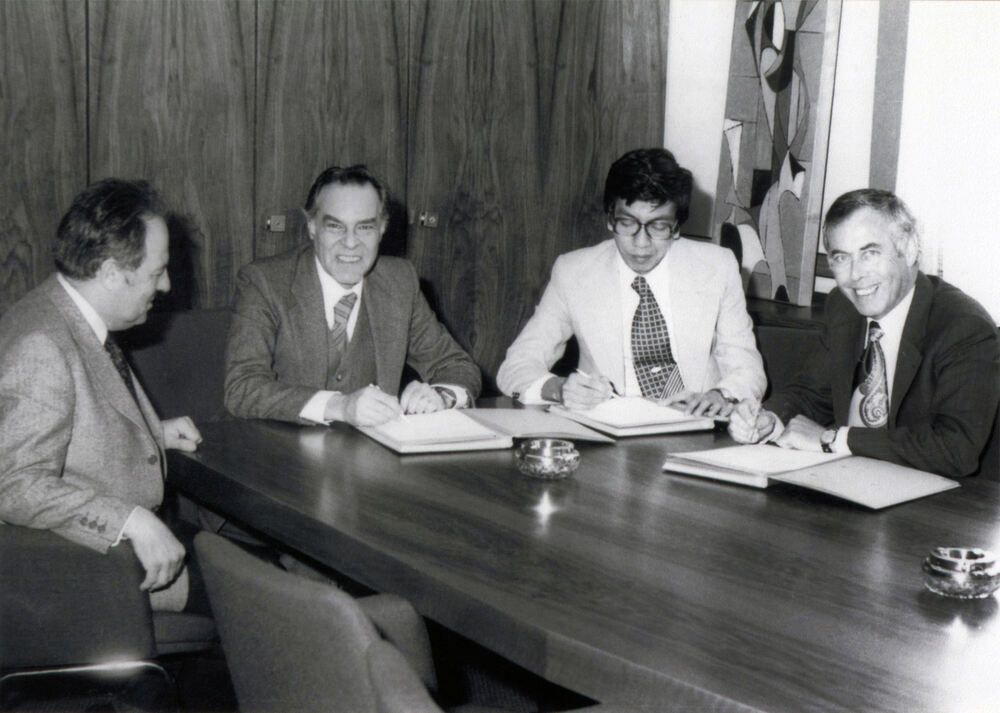
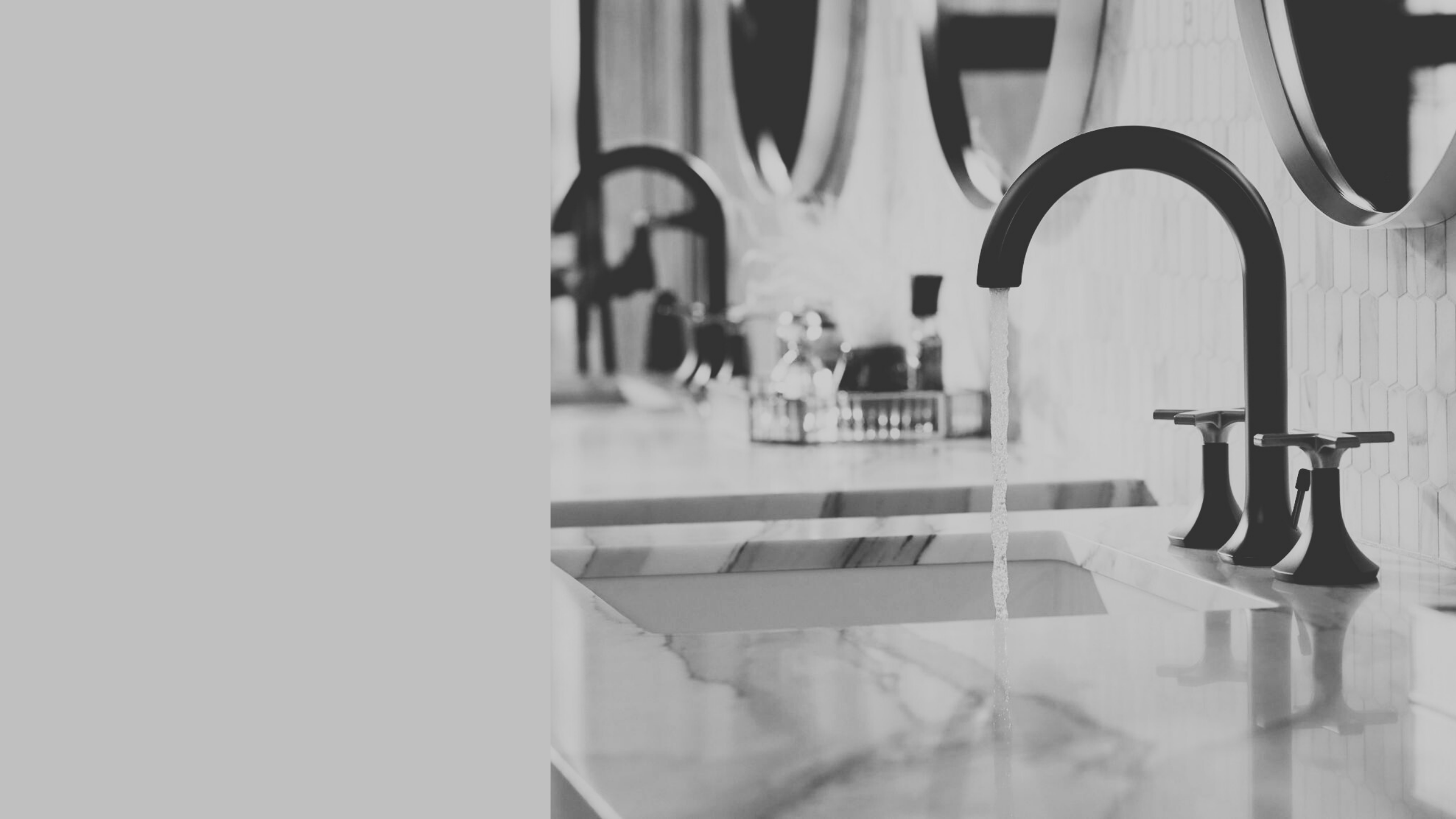
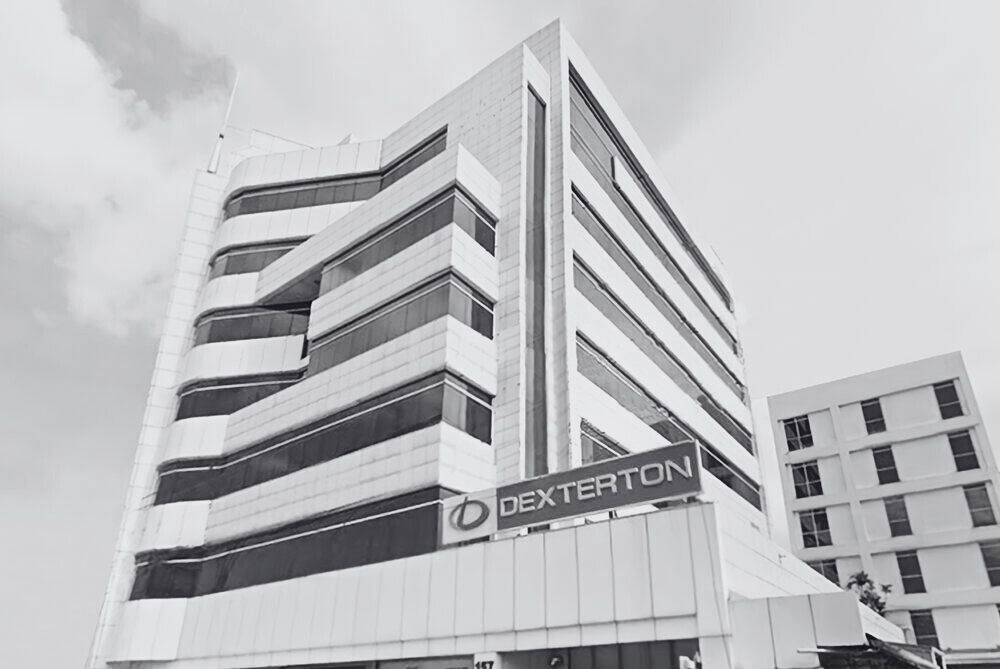
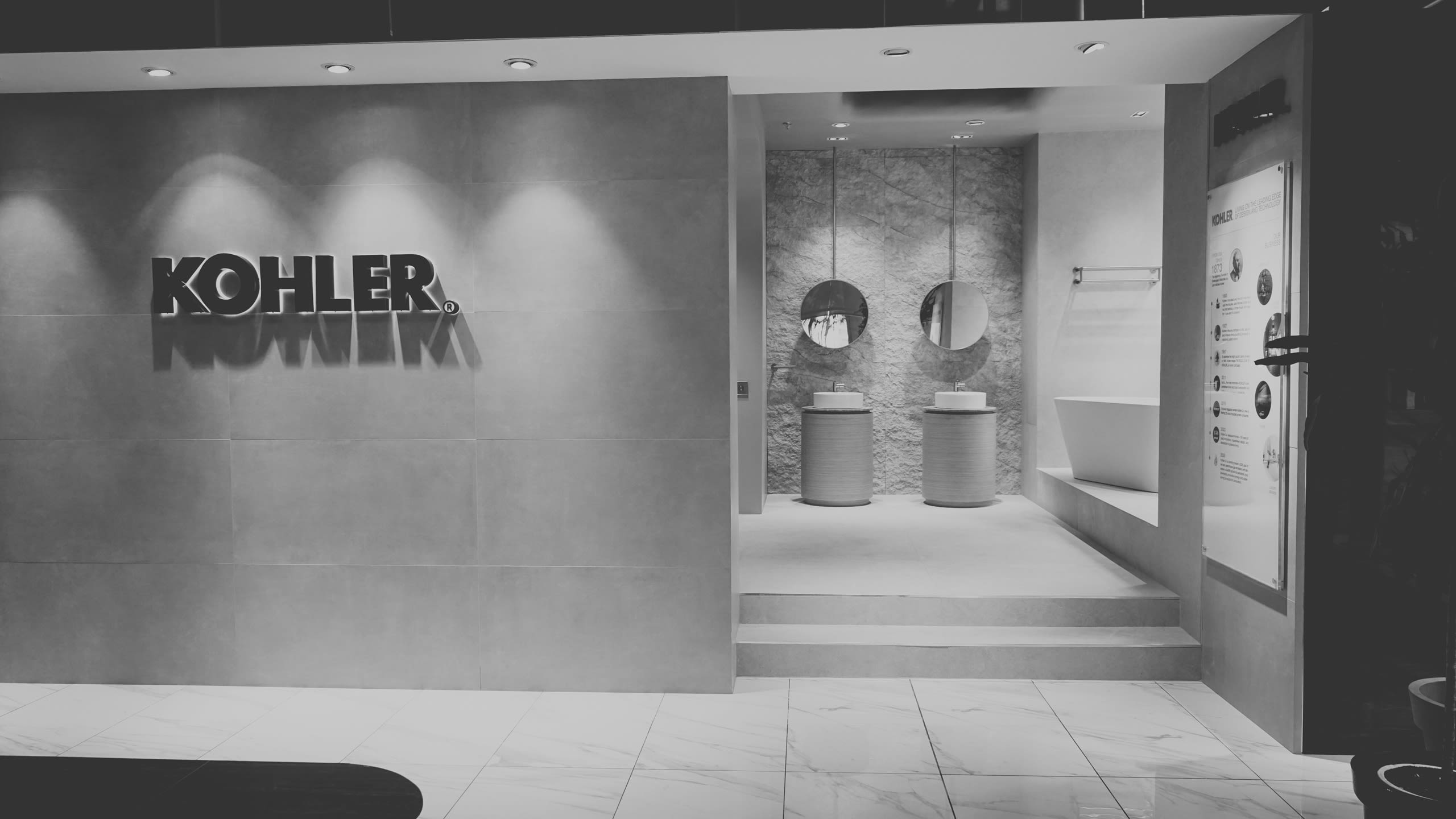
“Dexterton is shedding its old skin like a snake, transforming step by step. Though we’re 50 years old, we operate more like a startup.”
Audrey Go, CEO of Dexterton
Beyond the Transaction
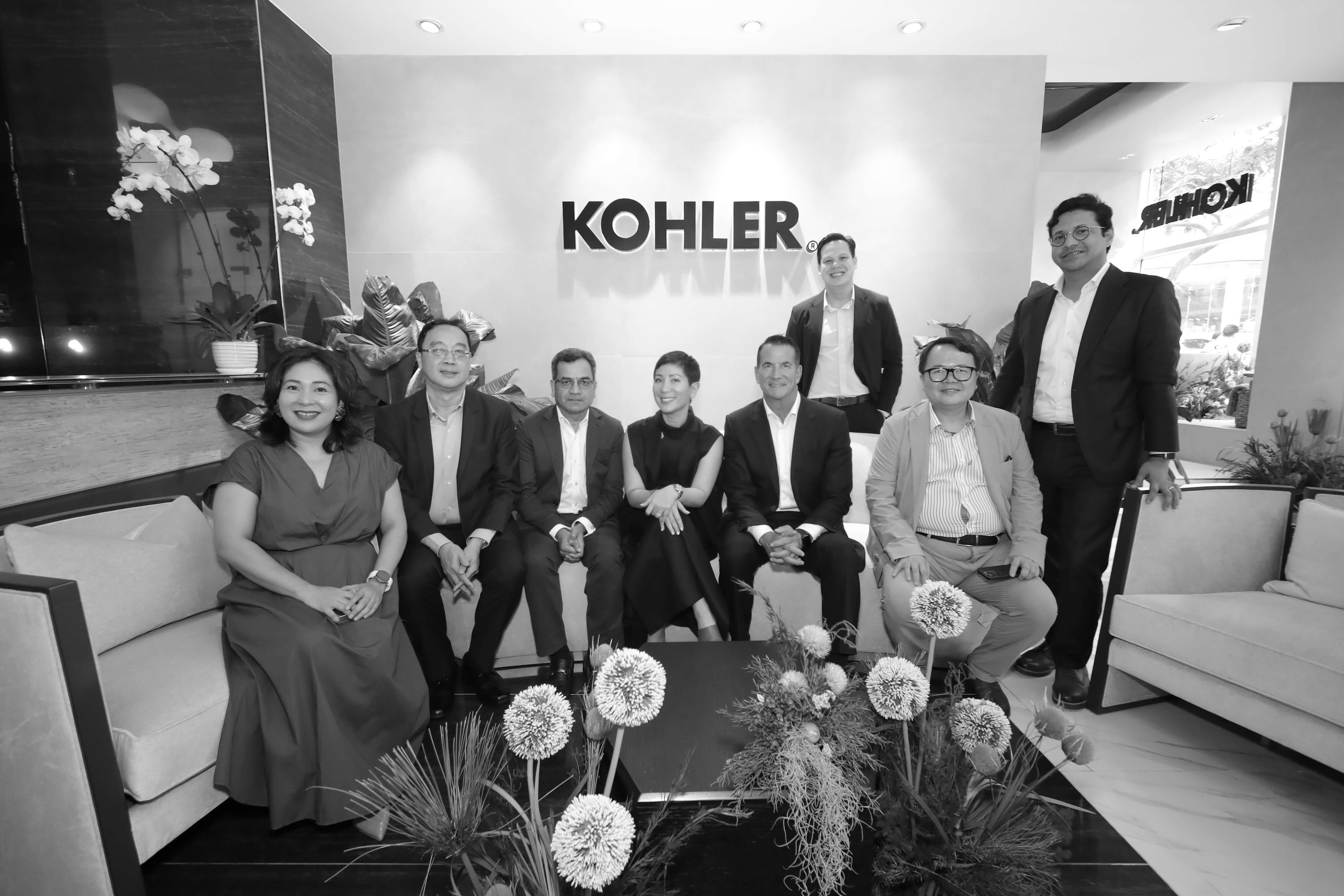
You talked about shifting from a transactional approach to a relationship-driven one. What does top-notch service really mean to you?
For us, great service means understanding our customers’ needs before they even ask. Many of our clients are designers working on multiple projects with tight deadlines. When they request pricing or specifications, they don’t just need the information - they need it fast. We must stay one step ahead, whether by preparing samples before they ask or even creating design boards in advance.
Growing up and working in retail early on in Canada, I learned that success isn’t just about the product - it’s about how you serve. That’s why I tell my team at Dexterton: “Wow our customers.” If someone walks into our showroom and says, “Wow, I didn’t expect you to be so fast,” that’s a win.
Dexterton was never built this way. My dad was very straightforward, the “Take-it-or-leave-it” style. So when clients now say, “This feels like a different company,” it means a lot to me.
Moving forward, I want service to go beyond experience. Customer service has become a buzzword, and it’s the bare minimum now. The best service isn’t just something you see or feel - it must be seamless and effortless, you don’t even realize it’s happening. That’s the future I want for Dexterton.
Many businesses claim to be customer-centric, but it's more like a buzzword, and they don’t live by it. In your opinion, what can be their barriers?
Even at Dexterton, we don’t always get it right. I will do whatever it takes to make a client happy, but we can’t be perfect at every level. Often, it’s not intentional neglect, but a habit. A missed update or an unnoticed comment usually comes down to a lack of training or confidence, not a lack of care. That’s why having a leadership team with a heart for service is critical.
In high-end retail, an unhappy customer can return the product with no questions asked. They understand that keeping a client happy builds irrational loyalty. I admire that mindset, and I want my team to live it too.
Let me tell you a funny story. A customer was frustrated with our service team after months of back-and-forth just to replace a toilet lid. Knowing that, I decided to replace the entire toilet for him. Later, he told me, “I don’t think I can buy anywhere else anymore. I feel obliged!” That’s the power of goodwill.
If I had focused purely on the expense, replacing that toilet would have felt like a loss. But in reality, what did it really cost? If I replace 10 toilets a year for free, the impact on my bottom line is minimal, but the loyalty it builds is priceless.
People in my parents’ generation saw every dollar spent as a direct hit to profit, but I see it differently in this age of social media: an angry client is 20 times more damaging than a happy one. That’s the weakness of being a customer-centric business, but we’re turning it into our biggest strength: being relationship-driven with our designers and clients. At least that’s the mindset we’re taking.
“If I focused only on the cost, it would feel like a loss—but the loyalty it builds is priceless.”
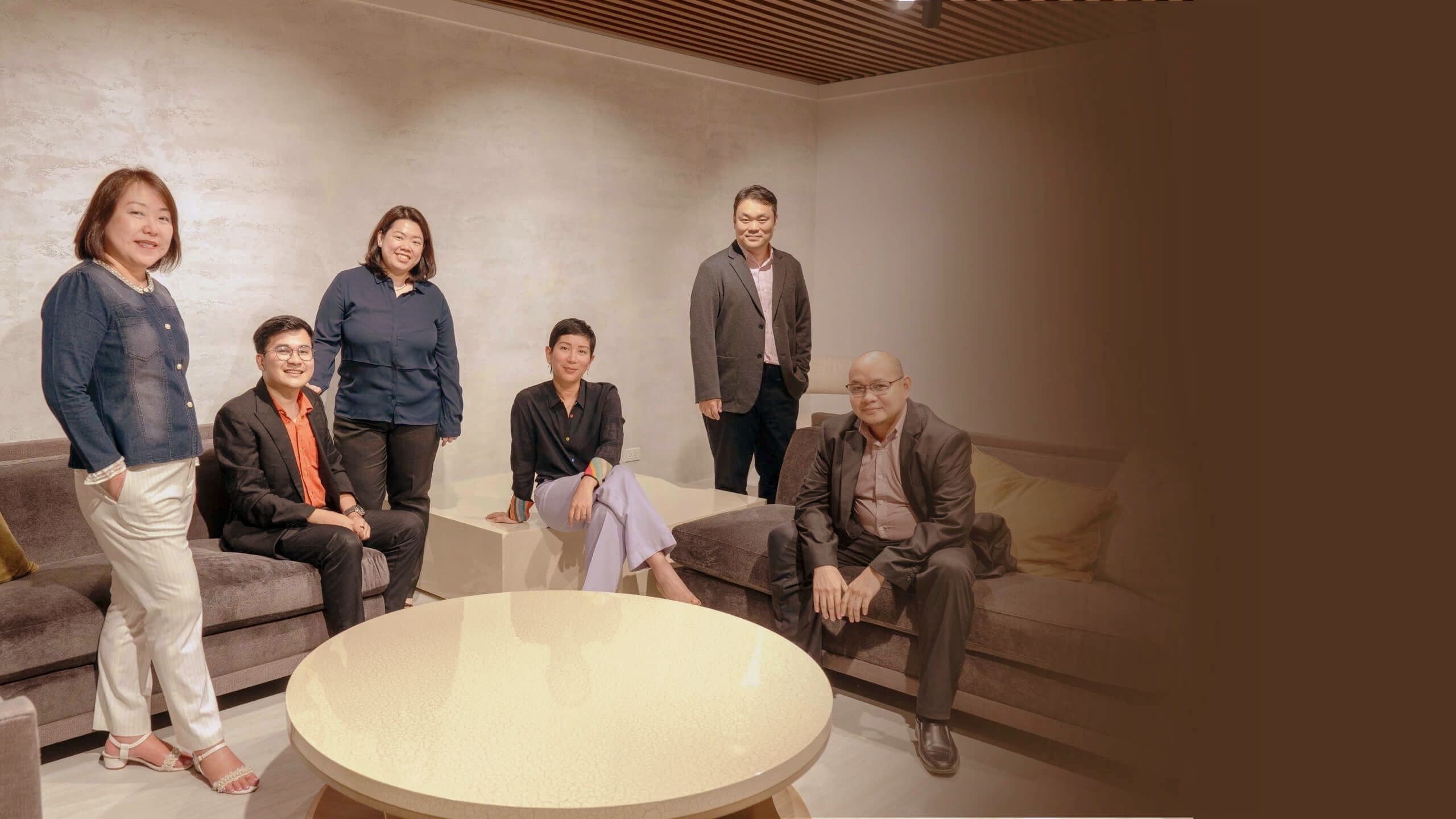
What about your suppliers? How do you keep relationships with them?
Back then, we had more purchasing power - it’s us buying from them after all. But today, markets are open, and there’s almost always another distributor like us. That means we must serve our suppliers as much as they serve us.
I used to get so frustrated when suppliers asked for forecasts, and our team would say yes, only for me to find out no one actually did it. It took us two years to shift that mindset. The team used to think, “Why forecast? We’re the buyers; we’ll just order when we need to.” But suppliers rely on forecasts to plan production.
For suppliers, coordination and accountability are everything. Promises are easy, but following through is what matters. Now, with the right people and systems in place, we’re finally building proper forecasting structures.
“We must serve our suppliers as much as they serve us.”
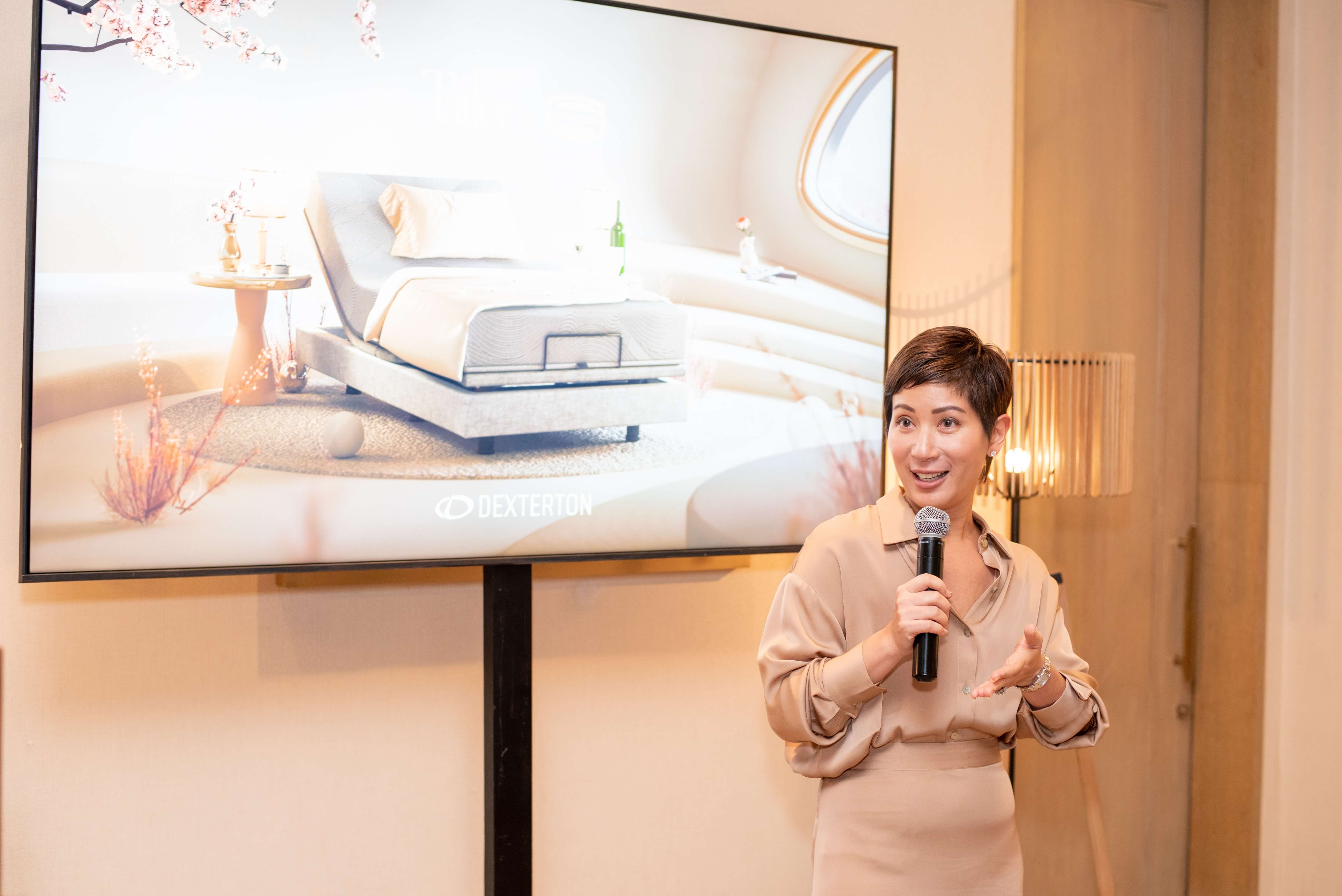
Now that you’re talking about the system, can you describe your tech stacks? How do you see the role of technology in your business growth?
Once the mindset shifted, the tools and systems naturally followed. Right now, we’re exploring what we need to build a stronger, more efficient company.
For a mid-sized business like ours, systems like ERP and CRM are a must. Even something as simple as remembering a client’s birthday or last order can greatly strengthen relationships.
We’re also integrating Microsoft 365 and using Rework for real-time collaboration. One-dimensional tools like Excel slow us down - waiting for someone to update a file, rename it, and pass it around is inefficient. With our projects set up on Rework, we can bring different departments like sales, marketing, finance, design, and supply chain together in one ecosystem.
Lately, my go-to phrase in the company has been: "If it’s not on Rework, it’s not a job." It’s my way of making sure tasks don’t get lost. When things aren’t documented, they don’t get done. I can’t track progress, and people aren’t held accountable.
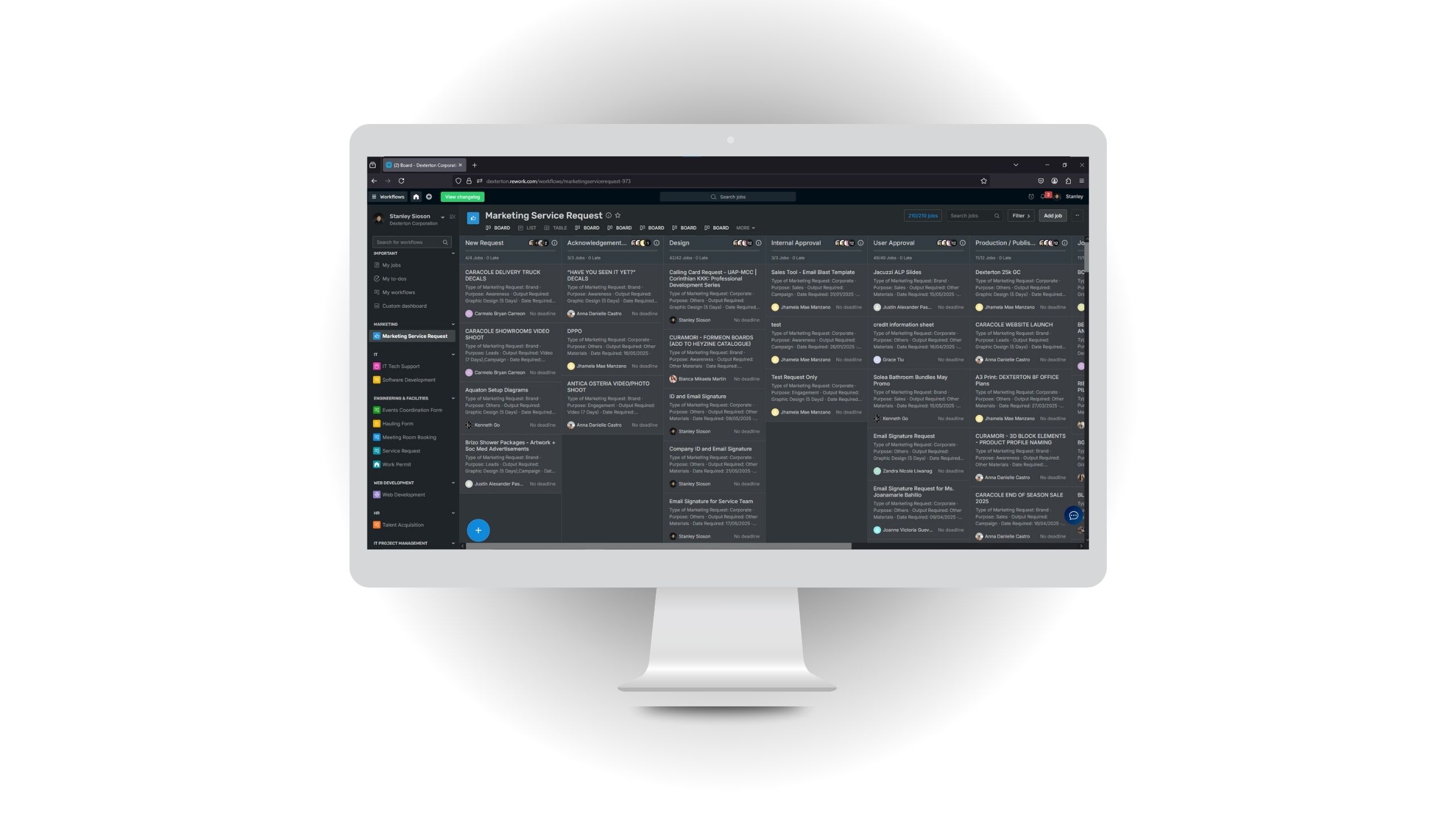
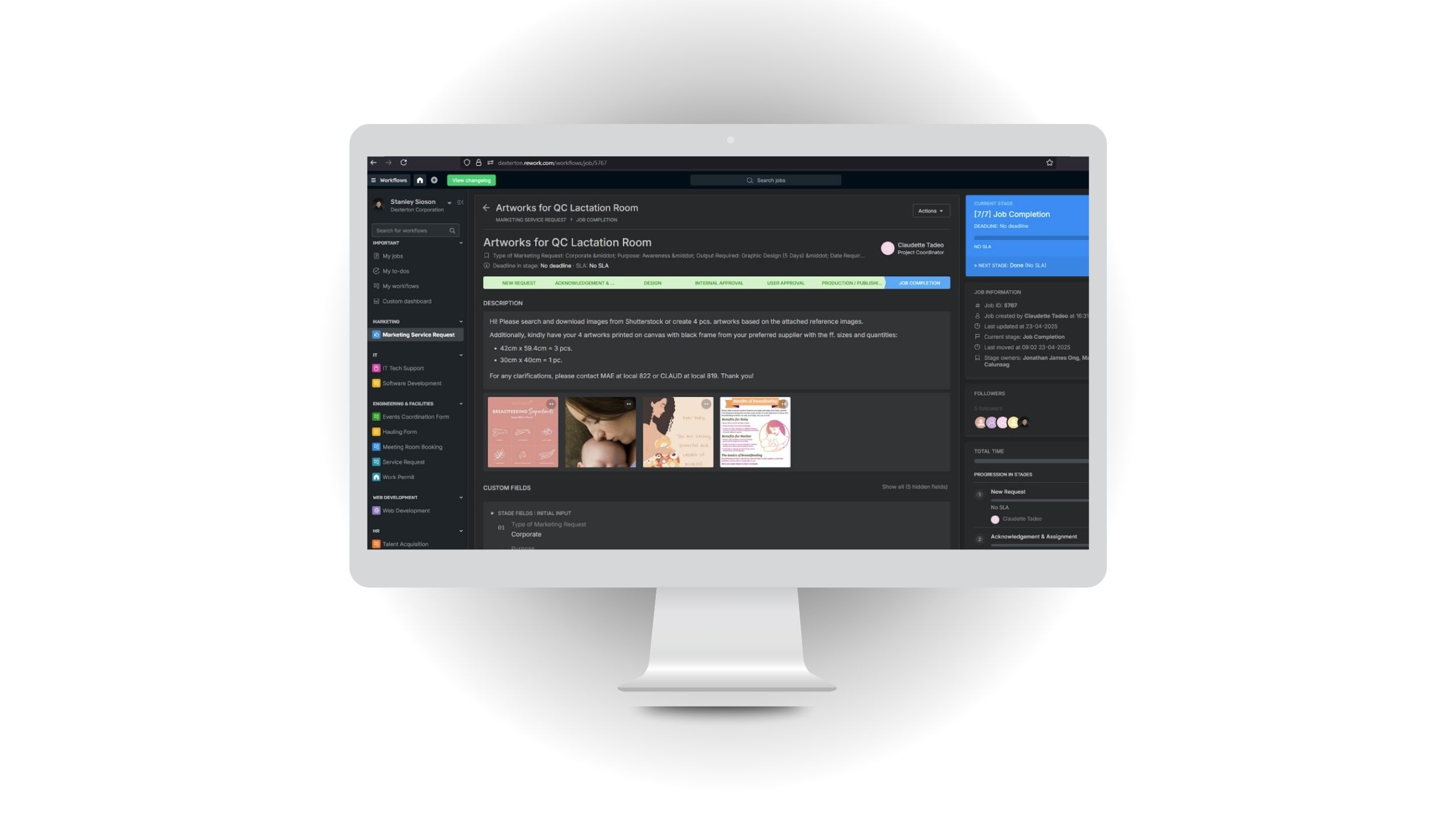
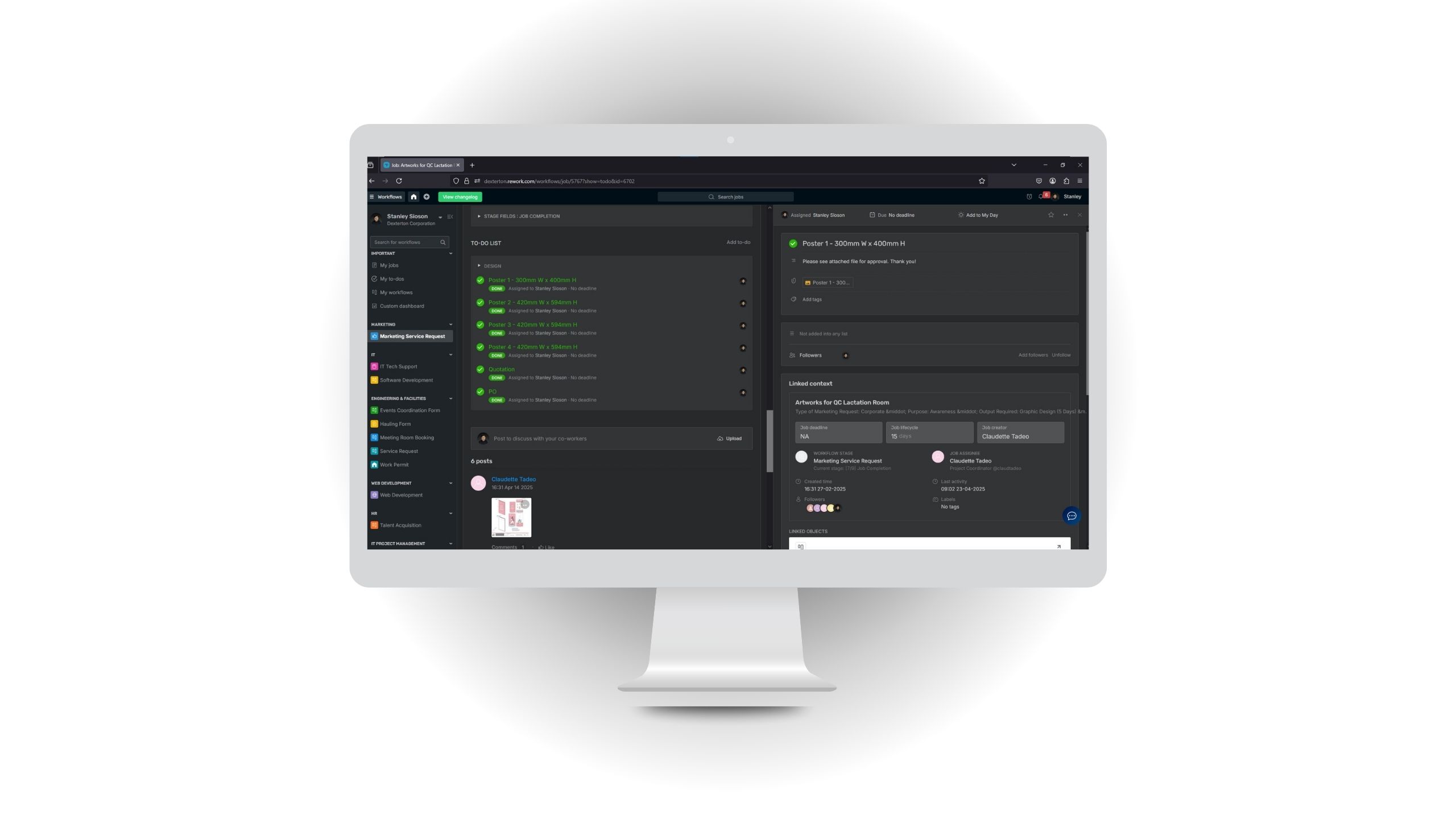
But beyond systems, my long-term vision is to fully leverage data. We’ve got 50 years of customer purchase history we haven’t tapped into. Imagine reminding a client to replace a toilet after 10 years - that’s the power of data. Not many companies here get that yet, and I want us to lead the way.


“We’re Here
for the
Infinite Game”
Many companies attribute their reason for change to fierce competition. What about you?
Evolving due to competition is the easy answer, but what pushes me forward is the aspiration to be great.
One of my favorite books, Good to Great, taught me that some companies, like Kodak, last 50 years and fade. Meanwhile, others thrive for a century because they constantly evolve. That’s what I want for Dexterton. We’re not working toward an endpoint; we’re here for the long, infinite game. That’s the name of another book that changed me - The Infinite Game by Simon Sinek.
At first, I played it safe - why change a 50-year-old company? But I’ve learned that leading with authenticity, leaning into who we really are, is what makes the difference. We’ve never been mainstream, and that’s our strength. When clients walk into our showroom and say, “Wow, this feels different,” that’s by design.
We don’t see others as competition - what we offer is unique. Instead of trying to be everything to everyone, we focus on the 80% of customers who truly resonate with us and deliver at the highest level.
You seem straightforward. Can be “too” straightforward.
When I first took over, my colleague Jonathan told me, "Between your dad, your brother, and you, I’m most scared of you." I was like: Why would you be scared of me? I don’t yell or swear, it’s because I hold people accountable.
I don’t let things slide. If I ask for something and it doesn’t get done, I’ll keep pushing it. But everything I do comes from a good place.
I used to face serious health challenges, and it changed me by giving me absolute clarity of intention. My decisions aren’t just about profit - they’re about making people’s lives better, whether it’s my employees, clients, or anyone I meet.
For me, the real legacy I can leave behind isn’t just a business - it’s the people I’ve helped grow along the way.
“My decisions aren’t just about profit - they’re about making people’s lives better, whether it’s my employees, clients, or anyone I meet.”

Happy to see both you and your company are growing from all those changes. Final question: How would you describe Dexterton and yourself in the next three, five, and ten years?
Over the next three years, our priority is to perfect our systems. With so much change, chaos is inevitable, but as we bring in more professionals and structure, I want to move from survival mode to stability, and eventually, stronger profitability.
Despite 50 years in business, we only have two showrooms. We’ve been part of people’s lives for decades, but haven’t fully expanded our brand. That’ll be our next step: scaling the business while strengthening its foundation.
In five years, I want Dexterton to have a solid financial position and the flexibility to explore growth options, whether that’s bringing in investors, selling equity, or even going public. We might not take that route, but I want to be in a position where we have that choice.
And in ten years? By then, I’ll be 55, and I’d like to step back, leaving Dexterton in the hands of professionals who can take it even further. Our big ambition is to 10x the company, we’re still defining the plan. But what matters is that we’re thinking bigger than ever before. And that’s what will drive us forward.
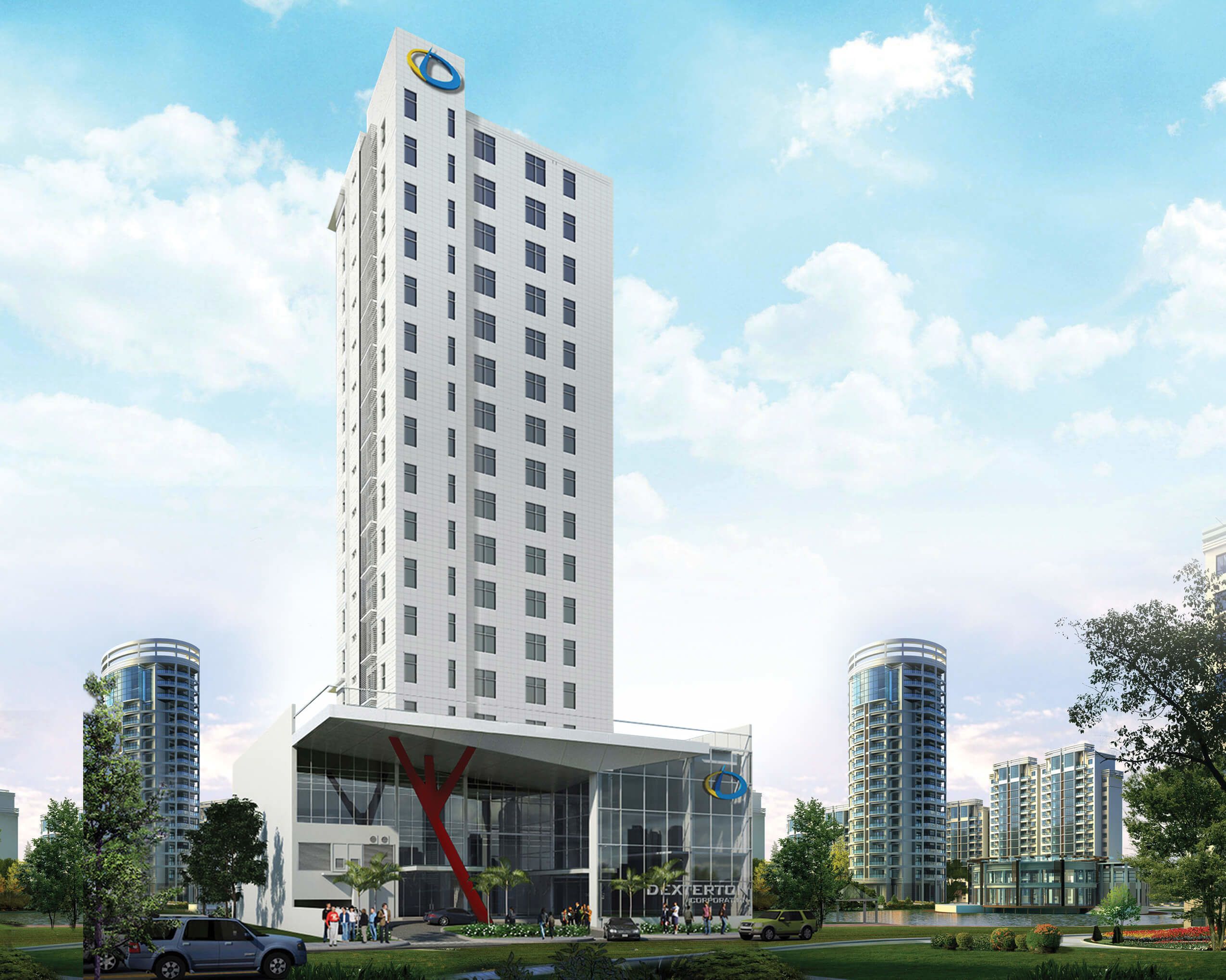
Part of DX Leaders · Philippines Edition · May 2025 series
Powered by Rework.com, your partner in operational excellence
Subscribe for more stories at:
https://resources.rework.com
Contact us: contact@rework.com


